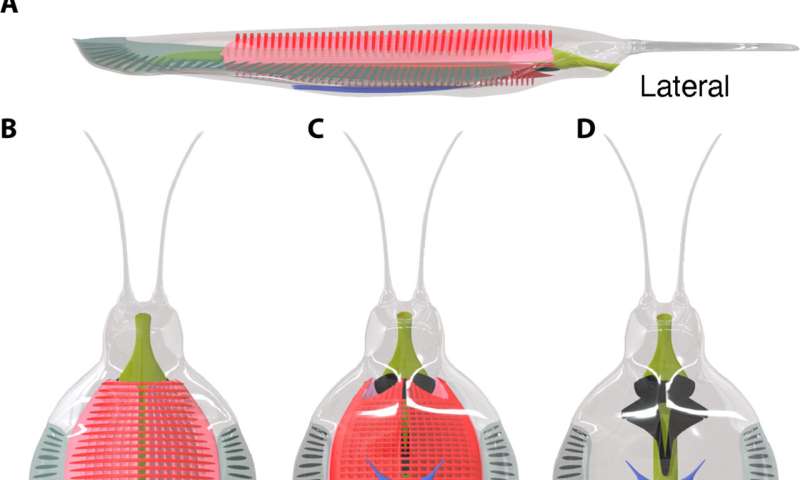Best of Last Week—giant predator worms, new type of transistor, complex sentences make brain work harder

It was a good week to start off the new year as an international team of natural and Earth scientists found evidence of giant predator worms that lived more than a half-billion years ago in North Greenland—fossils proving their existence were found in the Early Cambrian Sirius Passet locality. Also, a trio of life scientists at the University of Nottingham, in the U.K., found evidence that evolution is not as unpredictable as thought. Using a machine-learning approach on the genome of a bacterial species, Alan Beavan, Maria Rosa Domingo-Sananes, and James McInerney found that some of its evolutionary process could be predicted. And a research team made up of evolutionary biologists from the University of Maine, Colby College and the Institute of Evolution, Center for Ecological Research found evidence that suggested evolution might stop humans from solving climate change. Timothy Waring, Zachary Wood and Eörs Szathmáry found that characteristic processes of innate human evolution may obstruct its global solutions abilities.
In technology news, a team of engineers at the Georgia Institute of Technology designed and built the first functional semiconductor made from graphene. And team of computer scientists led by the University of Massachusetts Amherst developed an AI-driven machine-checking method for verifying software code that will hopefully lead to fewer bugs. Also, another team of engineers from Hunan University, the Chinese Academy of Sciences and Wuhan University developed a new kind of transistor based on monolayer black phosphorus and germanium arsenide. And a team of engineers affiliated with several institutions in South Korea demonstrated a butterfly-inspired design for the creation of crumple-recoverable electronics.
In other news, a large international team of doctors and medical researchers found evidence that people who stop consuming alcoholic beverages can reduce their risk of developing some types of cancers. Also, a team of engineers and atmospheric scientists at Harvard University, working with a colleague from the California Institute of Technology's Jet Propulsion Laboratory, found that increases in rice farming in recent years in sub-Saharan Africa has led to rising amounts of methane emissions into the atmosphere. And finally, a team of cognitive scientists at MIT, working with a colleague from the University of Minnesota, found evidence that complex, unfamiliar sentences make the human brain's language network work harder.
© 2024 Science X Network